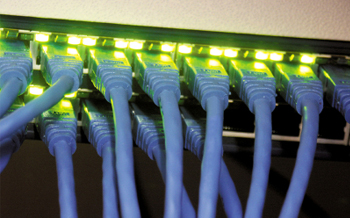
Outsourcing? Really. Its OK: How it can save time and money
Almost by definition, small business owners and entrepreneurs cringe at the concept of outsourcing. Those who start their own companies like the control and autonomy it provides them. Unfortunately, that preference for control and autonomy may have some bad side-effects when it comes to IT.
Small business don't have the resources to fully support all of their IT infrastructure needs. The present in-house staff is most likely very busy putting out day-to-day fires. One statistic suggests 65% of IT budgets go to nothing more than keeping the lights on. In short, staff is busy making sure the printer works or reloading a PC infected by a virus after an employee fell for a phishing email. This means that small firm's expenditures on IT are not improving operational, efficiency, or enhancing productivity or competitiveness.
There is an alternative. Managed Service Providers are outside consultants you can bring in to handle the day-to-day tasks, so your own IT resources can be used more productively.
How might an MSP supplement your IT efforts?
- 24/7 operations center - Small businesses can benefit from, but simply cannot afford 24/7 internal monitoring of their IT infrastructure. Many of the issues that become costly business disruptions, such as hardware, software, and applications failures are completely preventable if they're detected and addressed early enough. It is a reality that your systems run 24/7, but you can't support a 24/7 IT staff. A MSP, however, can use economies of scale to provide around the clock monitoring of your IT operations.
- Disaster recovery and business continuity plans - Small businesses have limited resources, so if there were to be a serious business interruption or data loss, they could be completely out of luck. However, risk assessments and continuity plans are likely outside of a small business owners field of expertise. A MSP can be brought in to design a complete solution.
These are just 2 ways that a small business owner can benefit from passing along IT support to an outside source. In both cases, small business owners don't lose any control of the key parts of the business operation. Instead, the distractions of IT support are moved along to an expert, while the entrepreneur focuses on what she does best: running her business. We'll talk in another blog about other benefits of outsourcing IT, but in the meantime, see our e-guide "Outsourcing Isn't a Dirty Word: Meet Managed Services, Your IT Team's New Best Friend - Managed Services".




